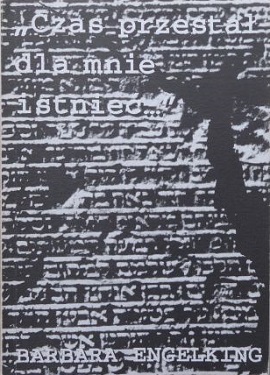Political science is the scientific study of politics which is a social science dealing with the analysis and implementation of systems of governance and its impact on societies.

An ethnic conflict is a conflict between two or more ethnic groups. While the source of the conflict may be political, social, economic or religious, the individuals in conflict must expressly fight for their ethnic group's position within society. This criterion differentiates ethnic conflict from other forms of struggle.

Kirkuk Governorate or Kirkuk Province is a governorate in northern Iraq. The governorate has an area of 9,679 square kilometres (3,737 sq mi). In 2017, the estimated population was 1,259,561 people. The provincial capital is the city of Kirkuk. It is divided into four districts.
Balkan Idols: Religion and Nationalism in Yugoslav States (ISBN 0-19-517429-1) is a book by Vjekoslav Perica. It was first published in 2002 by Oxford University Press.

The National Democratic Party is a political party in Georgia. It was established in 1988 by Giorgi Chanturia as a radical splinter group of the Ilia Chavchavadze Society. Although another party with the same name also existed earlier among the Georgian intelligentsia and in the Democratic Republic of Georgia from 1917 to 1924, this group was independent of that.
Stefan Wolff is a German political scientist. He is a specialist in international security, particularly in the management, settlement and prevention of ethnic conflicts. He is currently Professor of International Security at the University of Birmingham in the United Kingdom. Born in 1969, He studied as an undergraduate at the University of Leipzig and holds a Master's degree from Magdalene College, Cambridge, and a PhD from the London School of Economics, where he studied under the supervision of Brendan O'Leary. His doctoral thesis, dated 2000, was titled Managing disputed territories, external minorities and the stability of conflict settlements: A comparative analysis of six cases.
The Communist Party of Estonia (CPSU) (Estonian: Eestimaa Kommunistlik Partei; Russian: Коммунистическая партия Эстонии, romanized: Kommunisticheskaya partiya Estonii) was a political party in Estonia. The party was initially known as Communist Party of Estonia (on CPSU platform) (EKP (NLKP platvormil)), and was formed in 1990 through a split in the original Communist Party of Estonia (EKP). The split occurred at the 20th congress of EKP in March 1990, as a reaction against the decision of the congress to separate EKP from the Communist Party of the Soviet Union and rebrand itself into the Estonian Democratic Labour Party (EDTP). Immediately after the independence decision of EKP, the pro-Soviet delegates left the congress venue. The convened their own rival 20th congress on March 26, 1990. EKP (NLKP platvormil) elected its own Central Committee, headed by its First Secretary Alexander Gusev, and would function as a separate party from EKP.

The Association for the Study of Nationalities (ASN) is an academic association dedicated to the promotion of knowledge and understanding of ethnicity, nationalism, and ethnic conflict broadly, with a particular geographic focus on Central, Eastern, and Southeastern Europe, Russia, Ukraine, the Caucasus, and Eurasia. ASN is based at New York's Columbia University. It publishes Nationalities Papers and, in collaboration with the Specialist Group on Ethnopolitics of the Political Studies Association, Ethnopolitics.
Tze Ming Mok is a fiction writer and sociopolitical commentator, and has been a prominent New Zealand Asian community advocate.
Svante E. Cornell is a Swedish scholar specializing on politics and security issues in Eurasia, especially the South Caucasus, Turkey, and Central Asia. He is a director and co-founder of the Stockholm-based Institute for Security and Development Policy (ISDP), and Research Director of the Central Asia-Caucasus Institute & Silk Road Studies Program (CACI), and joined the American Foreign Policy Council as a Senior Fellow for Eurasia in January 2017.
Joseph Arthur Rothschild was an American professor of history and political science at Columbia University, specializing in Central European and Eastern European history.

Nationalism studies is an interdisciplinary academic field devoted to the study of nationalism and related issues. While nationalism has been the subject of scholarly discussion since at least the late eighteenth century, it is only since the early 1990s that it has received enough attention for a distinct field to emerge.

Harris Mylonas is Associate Professor of Political Science and International Affairs at George Washington University and the editor-in-chief for Nationalities Papers, a peer-reviewed academic journal published by Cambridge University Press. He is the author of The Politics of Nation-Building: Making Co-Nationals, Refugees, and Minorities, which was awarded the Peter Katzenstein Book Prize in September 2013 and the 2014 European Studies Book Award by the Council for European Studies. He has co-authored Varieties of Nationalism: Communities, Narratives, Identities. and has co-edited Enemies Within: The Global Politics of Fifth Columns as well as The Microfoundations of Diaspora Politics. He is currently working on another book project, Diaspora Management Logics. His documentary Searching for Andreas: Political Leadership in Times of Crisis (2018), which deals with the deep causes of the recent financial and political crisis in Greece, premiered at the 2018 Thessaloniki Documentary Festival and won two awards at the 2019 International Documentary Festival of Ierapetra.

Holocaust and Memory, originally published in 1996 in Polish and translated into English in 2001, is a book by Barbara Engelking and edited by Gunnar S. Paulsson. Engelking analyzes a series of Jewish survivors living in Poland to explore how their life under the Nazis impacted them. It was published in English by Leicester University Press.

Florian Bieber is a Luxembourgian political scientist, historian and professor working on inter-ethnic relations, ethnic conflict and nationalism, focusing primarily on the Balkans.

John Toaru Ishiyama is an American political scientist. He is a University Distinguished Research Professor of Political Science, and Chairperson of the Department of Political Science. He is also the Piper Professor of Texas at the University of North Texas. He studies comparative politics, particularly the party structure and democratization of Post-Soviet states, as well as the politics of Ethiopia. He is immediate past President of the American Political Science Association.

Ethnopolitical Association "Russians", or simply Russians (Русские), was a Russian nationalist organization founded in 2011 by Dmitry Demushkin and Alexander Potkin (Belov). It was outlawed on 28 October 2015 by a Moscow court after being designated as an extremist group.
Crisis in Kirkuk: The Ethnopolitics of Conflict and Compromise is an academic book by Liam Anderson and Gareth Stansfield, published in 2009 by the University of Pennsylvania Press.
Hsiao-ting Lin is a Taiwanese research fellow at the Hoover Institution who studies Greater China, including ethnopolitics, the Kuomintang, and Taiwan–United States relations during the Cold War.
Tribal multiculturalism refers to the caste heterogeneity of within some tribes in South Asia. While scholarship and popular images of Indian tribes have often emphasized the 'primitiveness' of their social organization or their social egalitarianism, researchers have long been pointing to processes of tribalization and the partial integration of Dalit and low-caste groups within tribal society.










